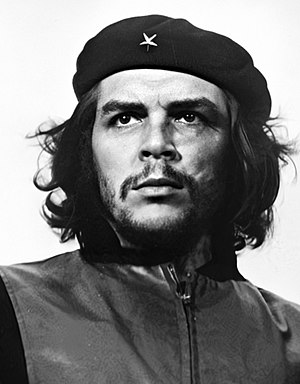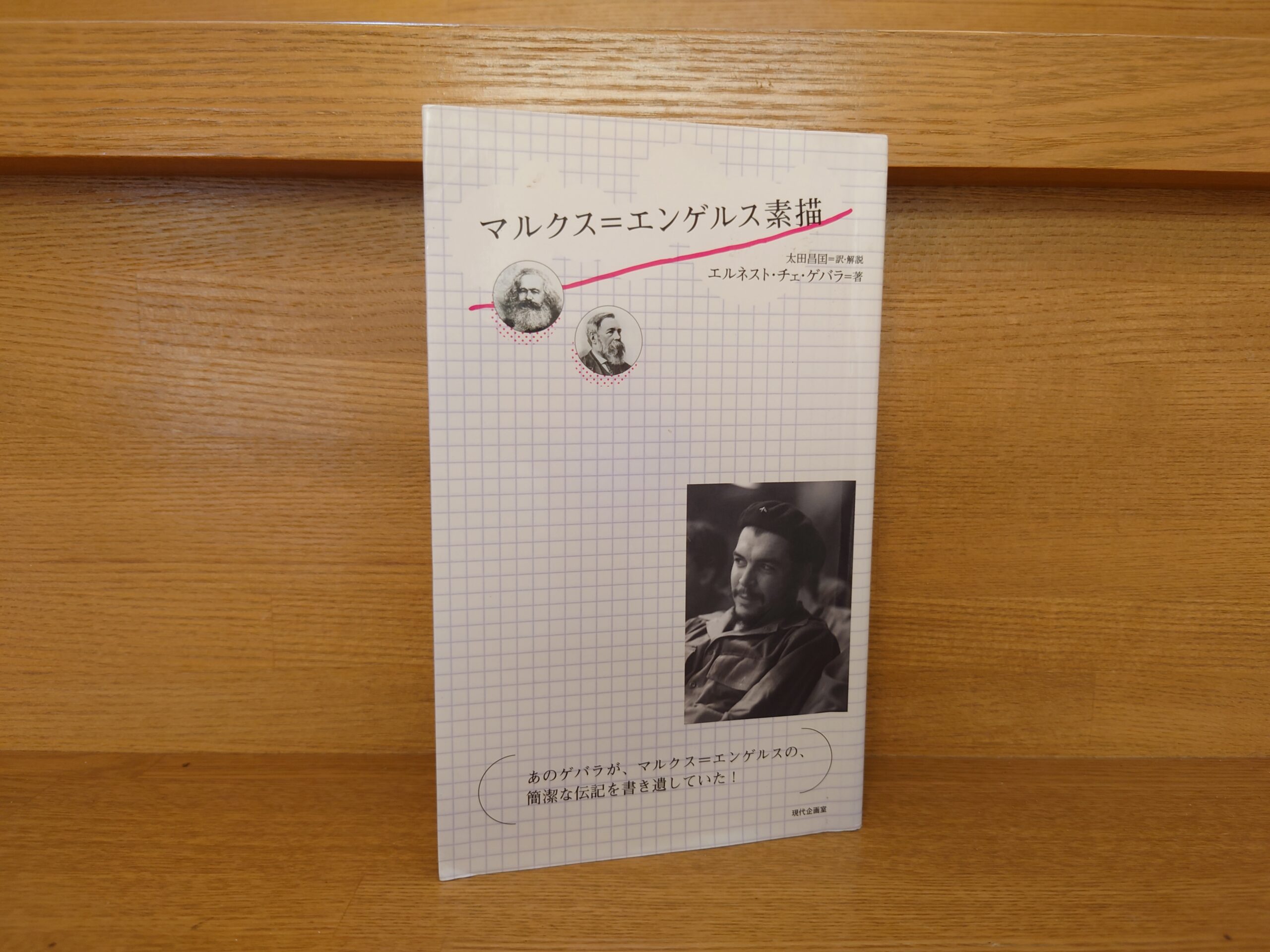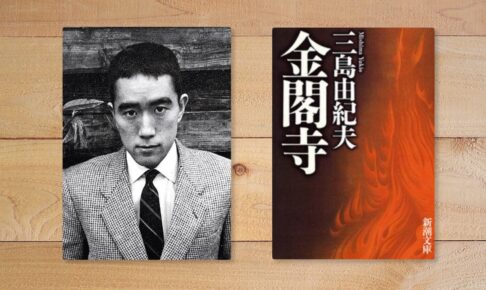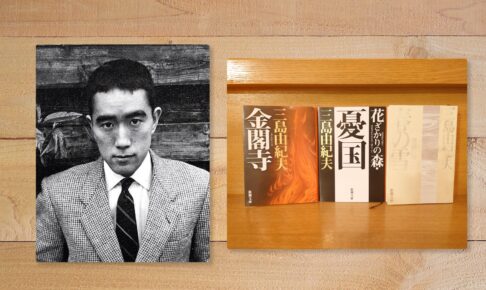Che Guevara's "Marx-Engels Sketch" Summary and Comments - That Guevara wrote a biography of Marx! What does Guevara think of Marxism?
The book introduced here is "Marx-Engels Sketches" written by Ernesto Che Guevara and translated by Masakuni Ota, published by Gendai Kikakushitsu in 2010.
Let's take a quick look at the book.
Contents (from "BOOK" database)
Guevara wrote a brief biography of Marx Engels.
AmazonProducts Page.

This work will be a brief biography of Marx Engels by Che Guevara.
As the product introduction above says, exactly "That Che Guevara! Right?
Since there is not much information in the introduction above, we will look at the translator's commentary at the end of the book on the book's origins.
It has been said since shortly after his death that Che Guevara had studied Marxist economics in his late 30s, just before his final battle in Bolivia.
Guevara's extraordinary interest in the state of the economy is described in a detailed report by the Polish-born journalist K. S. Karol, "Castro's Road: From Guerrilla to Power" (Yomiuri Shimbun, translated by Yasuo Yanaga, 1972, originally published in 1970), which analyzes various issues that arose in the 10 years immediately after the Cuban Revolution in 1959. (translated by Yasuo Yanaga, Yomiuri Shimbun, 1972, originally published in 1970), devotes a certain number of pages to the subject.
In Cuba, unlike Soviet socialism, which is filled with falsehoods, as many people around the world have realized, people are seriously attempting to seek true socialism, but this attempt is facing various difficulties due to the despicable sabotage by the U.S. imperialists, the great power of the North. The Soviet Union's intervention in Cuba is becoming more and more pronounced as the U.S. blockade network and pressure on Cuba grows stronger, and the Soviet intervention in Cuba is having a profound effect on the Cuban Revolution, which had a unique character that had never been seen before, and which is now in deep danger from the Soviet intervention. Cuba, a small country struggling in the midst of the U.S.-Soviet corner, "intensively embodies the crises and contradictions that are tearing the world apart," and thus "has become a kind of resonance box, acutely responsive to even the smallest upheaval, no matter how small the tragedy, that occurs in the contemporary world. -Through a wealth of literature, interviews, and observation, the author revealed that the "new world" is "a kind of resonant box" that is "acutely responsive to even the smallest upheaval or tragedy in the modern world. [omitted)
I visited Cuba for the first time at the end of 1992, one year after the collapse of the Soviet Union, and a representative of the "Casa de las Américas" (American House) publishing house told me that they were in the process of organizing Che Guevara's last manuscripts, which included some related to economics.
However, I was told that many of them are not theses but rather notes or commentaries on existing books, and that even if someone familiar with Che Guevara's handwriting were to work on them, it would take a considerable amount of time to decipher them. Indeed, it took 14 years, counting from the time I heard about it, to compile them into a book, which was published in 2006.
Modern Planning Office, Ernesto Che Guevara, translated by Masakuni Ota, Marx-Engels Sketches, p. 85-90
Some line breaks have been made.
The original version of this work was compiled from Guevara's posthumous manuscripts and published in 2006.
And as noted in the commentary above, this work is very much about where Che Guevara stands on Marxism.
First, when we think of Marxism, we think of the Soviet Union, but from Guevara's perspective, Soviet-style Marxism seemed to be distorted from the original Marx. The Soviet Union had become a rigid bureaucracy, and its reality was different from Guevara's ideal of Marxism. (For more on this, see the following article.)
So what is Guevara's idea of ideal Marxism, and we can see some aspects of it in this work.
We will look at some examples of this.
We must not forget that Marx was always supreme in his humanity. He loved his wife and children with the greatest tenderness. But he also felt that his life's work had to come first. Tragically, in this exemplary father and husband, the two loves - for his family and for his contribution to the proletariat - were mutually exclusive. He tried to reconcile them. But in his private letters, there is always a spirit of uneasiness that lives on somewhere. He stifles reason in the face of the reality of the strained and sometimes miserable life that afflicts his family.
Modern Planning Office, Ernesto Che Guevara, translated by Masakuni Ota, Marx-Engels Sketches, p. 43
We must not forget that Marx was always supreme in his humanity.
These words of Guevara are very important.
Guevara was a Marxist.Capitalism.It is clear that he cherished him as a "supreme human being" who lived to help the poor, rather than as an "intellectual being" who created the theory of the "poor. Guevara was strongly attracted to Marx's humanity.
Let's look at one more.
Marx, a human figure whose capacity for empathy seemed to extend to the entire suffering population of the world, with a message of earnest struggle and unwavering optimism, has been distorted by history and turned into a stony idol.
We must rescue him and give him human dimensions if norms such as his are to gain more light. Marxism has the task ahead of it to carry on the excellent work done by Mehring, to give it a broader perspective, to correct some of the interpretive errors that it has not been able to avoid, and to make the biography a complete one. We dedicate this small work to those who have not been exposed to Marxist economics and who are unaware of the vicissitudes of its founders, to whom the sketch we have done here can only serve as a guide to his work.
Modern Planning Office, Ernesto Che Guevara, translated by Masakuni Ota, Marx-Engels Sketches, p. 63-66.
Marx is such a human figure that his capacity for empathy extends to the entire suffering population of the world."
Here, too, Guevara portrays Marx as an ideal figure.
It was the 1960s when Guevara was drawing this work. At that time, Soviet power was still overwhelming.
However, after the collapse of the Soviet Union in 1991, the authority of Marxism quickly declined. The way we see Marx today is completely different from the way we saw him in the 1960s, when the Soviet Union was the dominant power in the world.
Moreover, the materials on Marx-Engels were in a sense limited at that time. Anything unfavorable to Marx Engels would not be available in the communist bloc in the first place. Only the deified Marx-Engels had the opportunity to come into contact with them. On the other hand, the capitalist camp portrays Marx as the devil and attacks him thoroughly. Against this background, extreme images of Marx dominated both the communist and capitalist blocs.
Guevara also studied Marx and Engels against this background.
However, as we have mentioned in this blog, various biographies and studies of Marx Engels have been published in recent years. We have come to know the "human Marx" differently from the overly deified and demonized Marx.
Among them, I am by Tristram Hunt.Engels, The Man Marx Called General.We followed Marx's life with a biography called
Through these various biographies, I was reminded that Guevara was, after all, looking at an idealized Marx.
We must not forget that Marx was always supreme in his humanity.
Marx is such a human figure that his capacity for empathy extends to the entire suffering population of the world."
The Marx that Guevara saw was Marx as the man above.
But whether this is really true or not is not really that big a deal. What matters is.How Guevara viewed Marx."This is the point that
Guevara saw "Marx living for a people suffering from poverty. It is the same figure that Guevara himself traveled to South America as a young man and aspired to be a revolutionary.
Guevara saw in him "Marx, the virtuous, humanistic revolutionary.
This "Marx-Engels Sketch" tells such a biography of Marx-Engels by Guevara. It is very easy to understand how Guevara viewed Marx Engels. It is an excellent work for understanding Guevara's view of Marx.
Now, so far in this blog, we haveDon Quixote."I have been looking at Che Guevara because of his connection to Marx, and I have been updating on Marx as well with the theme "Is Marx a Religious Phenomenon?".
I have been learning about Marx Engels through these articles, and I actually have one major contradiction.
That was the relationship between Guevara and Marx.
I admire Che Guevara. And I owe Guevara for connecting me with "Don Quixote".
With this in mind I have visited Guevara's grave in 2019 to offer my thanks.
The problem is that Guevara was a Marxist.
In 2019, I knew next to nothing about Marx, so I had a simple respect for Che Guevara, the Candid Revolutionary.
Frankly, even today, that sentiment has not changed. I think there are few people in history as virtuous as Guevara.
The only problem is that Guevara was a Marxist...
I have a fear of Marxism, partly because I studied the events under the Lenin-Stalin regime in the Soviet Union.
The question became whether I could accept Guevara, who espouses such Marxism, in the same way as before.
We must not forget that Marx was always supreme in his humanity.
Marx is such a human figure that his capacity for empathy extends to the entire suffering population of the world."
As noted earlier, this was the Marx that Guevara saw.
In a sense, it is an innocent and optimistic view of Marx.
In this light, we can say that Guevara is Guevara, whether or not he subscribes to Marxism.
It is not that Guevara became a revolutionary because of his commitment to Marxism, or that Guevara's essence lies there.
For more on this, see Toru MiyoshiThe Biography of Che GuevaraBut it was also written. Guevara was originally a noble warrior who, like Don Quixote, could not tolerate social injustice. It was there that he met Castro, fought the Cuban Revolution, and studied Marxist ideology.
In this way, I think it is still unfair to consider Guevara as a problem just because he studied Marxism in his later years. I believe that even if Guevara was a Marxist, he was at heart a man in search of an ideal.
So I think my contradiction has been resolved to some extent, but I wonder how you feel about it. I would be happy if you could understand this feeling, however subtle it may be.
And one more point. I feel this is also a very important point: "Marxism failed even for a man as virtuous as that Che Guevara.
After the Cuban Revolution, the socialist regime headed by Castro implemented a series of reforms. Education and health care showed remarkable progress, and the former inequalities were eradicated with astonishing results, although everyone was poor.
However, despite this, industrialization did not progress, and the trade embargo imposed by the U.S. made it difficult to achieve economic growth. Under such circumstances, Guevara continued to work hard as Minister of Industry. However, his efforts were not rewarded, and he left Cuba, eventually losing his life in a battle in Bolivia.
I mentioned earlier that "even a man as honorable as he was failed." In Toru Miyoshi's "Biography of Che Guevara," he wrote the following about his integrity and work ethic. It is a bit long, but it is very helpful in understanding Guevara's personality, so I will read it carefully.
Che volunteered to perform labor services for government employees.
We always did the labor service of cutting sugarcane every Sunday," he said. In the nine-story Ministry of Industry, there was one person in charge of each floor, and Che was in charge of the ninth floor. Cheh was in charge of the ninth floor. He always left around five o'clock. While the vice-ministers and the heads of the departments below them went by car, Choi always took a truck with everyone else. Only when he had an asthma attack did he use the car, but even then he would not stop serving. The public knew it, too, and waited for him on the side of the road, and Che! Che! They were calling out, "Che!
Whenever I saw something resting or something, I would say, 'What's wrong with you? I would chide them, saying, 'You can't be lazy. Although there were fewer people on the ninth floor than on other floors, I encouraged everyone to work hard and not to be defeated. So everyone had to work very hard. Che himself even sent his wife and children to work as laborers.
Despite these efforts, the road to industrialization was rocky. (omitted).
In fact, Che continued to struggle. As already mentioned, he worked with dedication and sleepless nights. But not all Cubans were like Che.
-It doesn't matter how many kilograms of meat you can eat, or how many times a year you can go to the beach on your day off, or how many beautiful imported goods you can buy on your current salary.
Che was a man of his word, and he was a man of his word.
Although he did not accept money or material rewards, Che's disdain, if not indifference, to money can be seen in the following letter, dated July 12, 1964, to Eide Santamaria, the head of the National Publishing House. It is dated July 12, 1964, and is addressed to Eide Santamaria, head of the National Publishing House.
-Dear Ide
I have received a notice from the Writers' Alliance that they will give us the money in the example at your discretion. This seems to be a compromise to avoid getting into a dispute of the nature that they are foolishly running up a huge deficit.
The only important thing to remember is that you will not receive a centavo from the book. The book does nothing more than talk about various aspects of the war. The money is yours to spend as you wish.They refused to accept royalties from "The Guide to the Revolutionary War," which had been published the previous year. But that was not always the case. The Latin American temperament, for example, had always taken root among the Cuban people.
It is extremely difficult to describe the Latin American spirit, but I would say that pride, greed, and a lack of sense of time are some of its characteristics. In Latin America, it is a miracle that anything goes as planned. I have experienced this in Mexico, Bolivia, Peru, and Argentina during my travels.
Cuba was no exception. I had to wait a week to get a signature for my exit visa, and finally I was able to get it on a Sunday after finding the officer in charge at his home and forcing him to hold a pen in my hand.
The same is true of sugarcane harvesting. A veteran farmer who has been engaged in the industry for a long time harvests 1,200 arobas (an aroba is just over 11 kilograms) in an eight-hour workday. Prime Minister Figel Castro reaps 800 arrobas. But the average member of the labor service mows 200 or at most 250 arobas. This does not mean that they are averse to work. It is just that it takes them a long time to accomplish one task.
Indeed, post-revolutionary Cuba has improved in every respect. Compulsory education is free, the literacy rate is 100 percent, and death by starvation has been eradicated. Although the revolution overcame two crises and continued to make constant progress, not everything was smooth sailing, of course. In particular, in terms of human consciousness, the old-fashioned temperament remained at every level, as shown on the right. The people were more moved by material stimuli than by spiritual ones. In other words, they were more interested in dango than flowers. Che did not deny the effectiveness of dango. The Cuban Revolution was not a theory-driven revolution, but rather a reaction against Batista's excessive exploitation and tyranny. It was, in other words, a desire to satisfy material needs. But revolution is not a panacea. It cannot satisfy all their needs. In fact, in reality, it cannot fulfill even half of them.
-The hard days are not far behind us. Not in terms of the economy, and even less so in terms of the threat of foreign invasion. Indeed, these are difficult days. But now is the time worth living.
And Che preached "a new attitude of taking the lead in labor. And he himself worked at the head of the line, much to the amazement of his subordinates.
No one could have duplicated Che's dedication. If people had at least half of the passion for the revolution that Che had and the sense of responsibility that he had set for himself, the progress of the Cuban Revolution would have been remarkable.
Bungeishunju, Toru Miyoshi, Che Guevara Biography, p. 304-308
Che preached "a new attitude of taking the lead in labor. And he himself worked at the head of the line, much to the amazement of his men."
And,
No one could have duplicated Che's dedication like he did."
I think it boils down to this.
There are no more honorable and dedicated men in the world than Che Guevara. If there were, there would be only a handful.
Even for such a man as Che Guevara, Marxism failed. That is why Guevara left Cuba in search of the next place.
Marxist theory is a thoroughly rational revolutionary theory.
The problem with Marxism is that it can easily turn to totalitarianism, bureaucratic corruption, and exploitation, depending on who is operating it (the same thing is happening in the capitalist camp...).
History has proven what happens when Marxism is applied and operated in a nation and the people who lead it are driven by self-interest.
This is what happens when people who call for an equal society with no disparities come to power.
How many people in this world can resist the temptation of power and wealth?
Guevara is a rare example. But even with Guevara, Marxist social reform did not work.
What would happen if people who are not as good as Guevara tried it? Will there be anyone who can resist the temptation of power and self-preservation without being motivated by self-interest? If there were, very few would be able to. Many were moved more by the materialistic thrill than by the spiritual thrill, as was explained above. They live for "dango rather than flowers," so to speak.
Human beings are not driven by theoretical ideals alone. I believe that Marxism does not take these human desires and feelings into account. However, I do not think that "capitalism" is a panacea either. It goes without saying that it has many disadvantages. However, I believe that the decisive weakness of Marxism lies in these points.
Those who operate Marxism must do so without desire or emotion, and people must do the same.
This made me think that the significance of "even a man as big as Guevara failed" must be tremendous.
However, Cuban socialism was unique and different from that of the Soviet Union, so it cannot simply be compared to the Soviet state system and people's lives. The situation in which Cuba found itself was very unique. It is certain that Castro and Guevara were struggling to rebuild the country. For more information on the Cuban situation, please refer to the previously mentioned book by Chihiro Ito.Cuba, the Latin Soul that Brought a Superpower to its Knees."You can read more about it in the book, "The Role of the Sake Maker.
Now, I have spoken at length through Guevara's "Marx-Engels Sketches," but Che Guevara is very significant to me.
I would highly recommend this work to learn more about Guevara.
The above is "Che Guevara's "Marx-Engels Sketch" - That Guevara wrote a biography of Marx! What does Guevara think of Marxism?" The above is "Che Guevara's Marxism-Engels Sketches".
Next Article.
Click here to read the previous article.
Related Articles







































